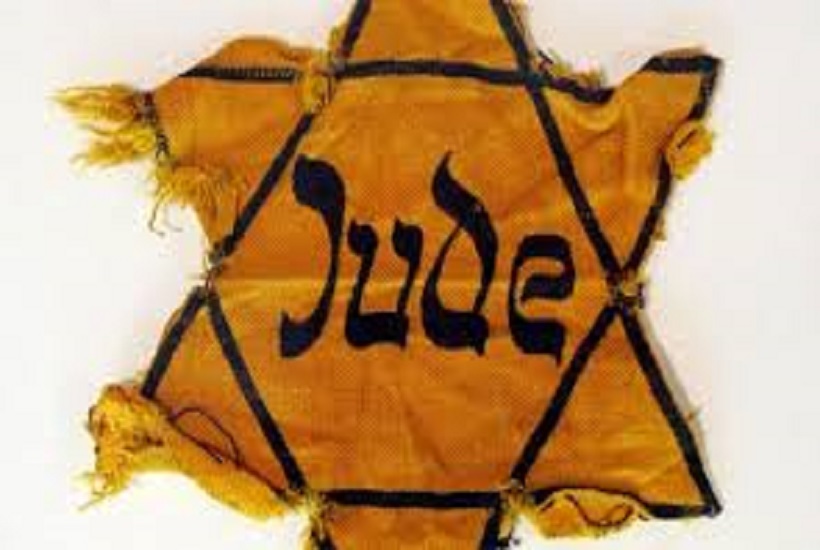My grandfather made the lifesaving decision to leave Poland for Australia shortly before World War II broke out. However, for the rest of his life, my grandfather lived with the agony of knowing his entire family perished in the war. He would tell of how he heard that one uncle survived the war as the result of being a Captain in the Polish army, but that, on his return home, he was killed by Polish neighbours.
Now recounting stories of Polish culpability for crimes committed during the Holocaust could be a criminal offence according to a new law passed in Poland. On 6 February Poland’s President Andrzej Duda signed a bill into law which calls for prison terms for people blaming Poland as a nation for Holocaust crimes committed by Nazi Germany. After signing the law, President Duda said he would also ask Poland’s constitutional court to evaluate the bill, which means it may possibly be amended in the future.
The Polish legislation includes the following paragraph:
Whoever claims, publicly and contrary to the facts, that the Polish Nation or the Republic of Poland is responsible or co-responsible for Nazi crimes committed by the Third Reich… or for other felonies that constitute crimes against peace, crimes against humanity or war crimes, or whoever otherwise grossly diminishes the responsibility of the true perpetrators of said crimes – shall be liable to a fine or imprisonment for up to three years.
The law applies irrespective of where the “prohibited act” took place, and regardless of whether the offender is a Polish citizen or a foreigner.
Poland’s President signed the legislation despite protests from Israel, the US and Jewish community groups, all of whom are concerned that the law could undermine Holocaust scholarship and could prohibit Holocaust survivors and witnesses from talking about crimes committed by Poles during World War II.
Israeli Prime Minister Benjamin Netanyahu was scathing, and said in a statement, “The law is baseless; I strongly oppose it,” adding, “One cannot change history, and the Holocaust cannot be denied.” Israel also postponed a planned visit by a top Polish national security official.
The US also expressed “disappointment” over Poland’s decision, with US Secretary of State Rex Tillerson stating that enactment of the law “adversely affects freedom of speech and academic inquiry.”
Israel’s Holocaust remembrance centre Yad Vashem described the decision as “unfortunate,” noting that it had repeatedly warned Polish authorities of the flaws in the wording of the legislation, and commenting: “These flaws are liable to result in the distortion of history due to the limitations that the law places on public expressions regarding the collaboration of parts of the Polish population – either directly or indirectly – in crimes that took place on their own land during the Holocaust.”
Polish officials who support the legislation claim that the law is necessary to prevent Poland from being wrongly accused of institutionalised participation in the Holocaust, and to combat incorrect expressions like “Polish death camps”, referring to what were actually Nazi German camps built on Polish soil. Advocates of the legislation note that Poland was invaded and occupied by Germany in 1939, but unlike countries such as France, Hungary and Norway, there was no collaborationist government in Poland, and millions of Poles were killed. Polish officials also claim that there is an exemption in the law for historic research and works of art.
The context of the law is also important as it appears that Poland’s governing Law and Justice party is using the legislation to promote nationalism as an election strategy, despite concerns it is emboldening Poland’s far-right.
Since the controversial legislation passed, the diplomatic fall out between Israel and Poland has escalated. Adding salt to the wound, Polish Prime Minister Mateusz Morawiecki implied to Israeli journalist Ronen Bergman on Feb. 19 that alongside Poles, Jews were also responsible for perpetrating the Holocaust. Rejecting criticism of the legislation as potentially prohibiting discussing Polish perpetrators, Morawiecki commented, “Of course it’s not going to be punishable, [it’s] not going to be seen as criminal to say that there were Polish perpetrators, as there were Jewish perpetrators, as there were Russian perpetrators, as there were Ukrainian; not only German perpetrators.”
The next day Israeli Prime Minister Benjamin Netanyahu spoke with Morawiecki by phone and said that Israel did not accept his statement. Netanyahu told Israeli reporters, “I told him there’s no basis for this comparison, between the act of Poles and the acts of Jews during the Holocaust.”
Following the conversation, a statement from Morawiecki’s office said his comments “were by no means intended to… charge the Jewish victims of the Holocaust with responsibility for what was a Nazi German-perpetrated genocide.”
Poland’s historical relationship with the Jews during and after World War II has been complicated. It is a history that certainly contained heroic tales of Polish resistance to Nazi occupation and of righteous Polish gentiles who saved Jewish lives, but it also includes individual Poles who were complicit in Nazi crimes, including the infamous massacre at Jedwabne in 1941 – where at least 340 Polish Jews were locked in a barn which was set on fire, with the help of at least 40 Poles. Furthermore, after the war ended, many Jews attempting to return to their homes were mistreated or murdered by their Polish neighbours, as my grandfather’s uncle was. There were even postwar pogroms against survivors in Krakow and Kielce.
Polish historian Jan Grabowski has estimated that more than 200,000 Jews were killed, directly or indirectly, by Poles during World War II.
During the Cold War years, Communist Poland largely ignored Jewish suffering during the Holocaust, presenting Poles and Communists as the key victims of Nazism. However, since the fall of communism in 1991, Poland had come a long way in accounting for its checkered history during and after World War II. This legislation threatens to undermine the progress made and severely damage Jewish-Polish relations, Poland’s relationship with Israel, and indeed, Poland’s reputation around the world.
Sharyn Mittelman is a senior policy analyst at the Australia/Israel & Jewish Affairs Council.
Got something to add? Join the discussion and comment below.
Got something to add? Join the discussion and comment below.
Get 10 issues for just $10
Subscribe to The Spectator Australia today for the next 10 magazine issues, plus full online access, for just $10.


























Comments
Don't miss out
Join the conversation with other Spectator Australia readers. Subscribe to leave a comment.
SUBSCRIBEAlready a subscriber? Log in